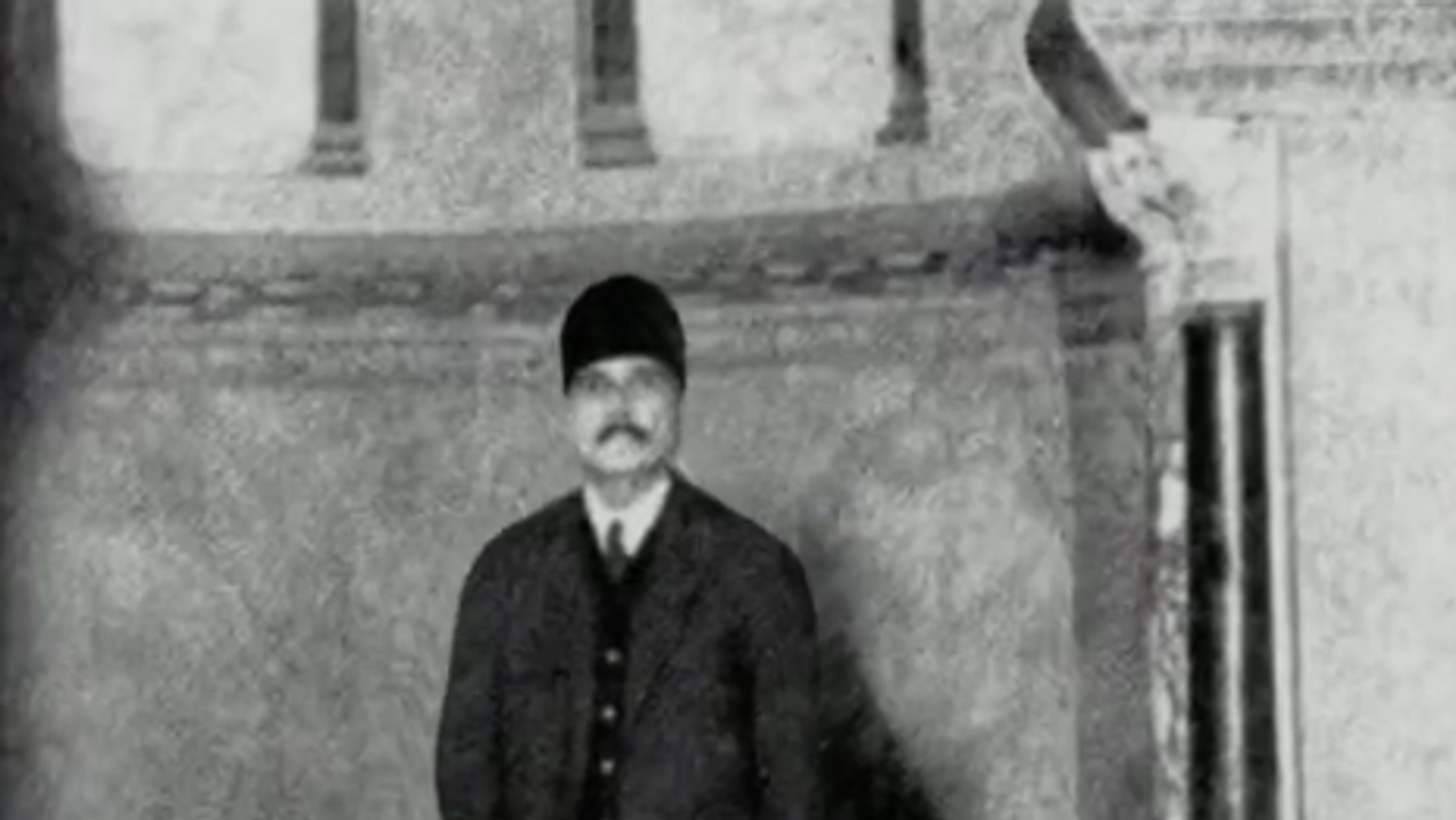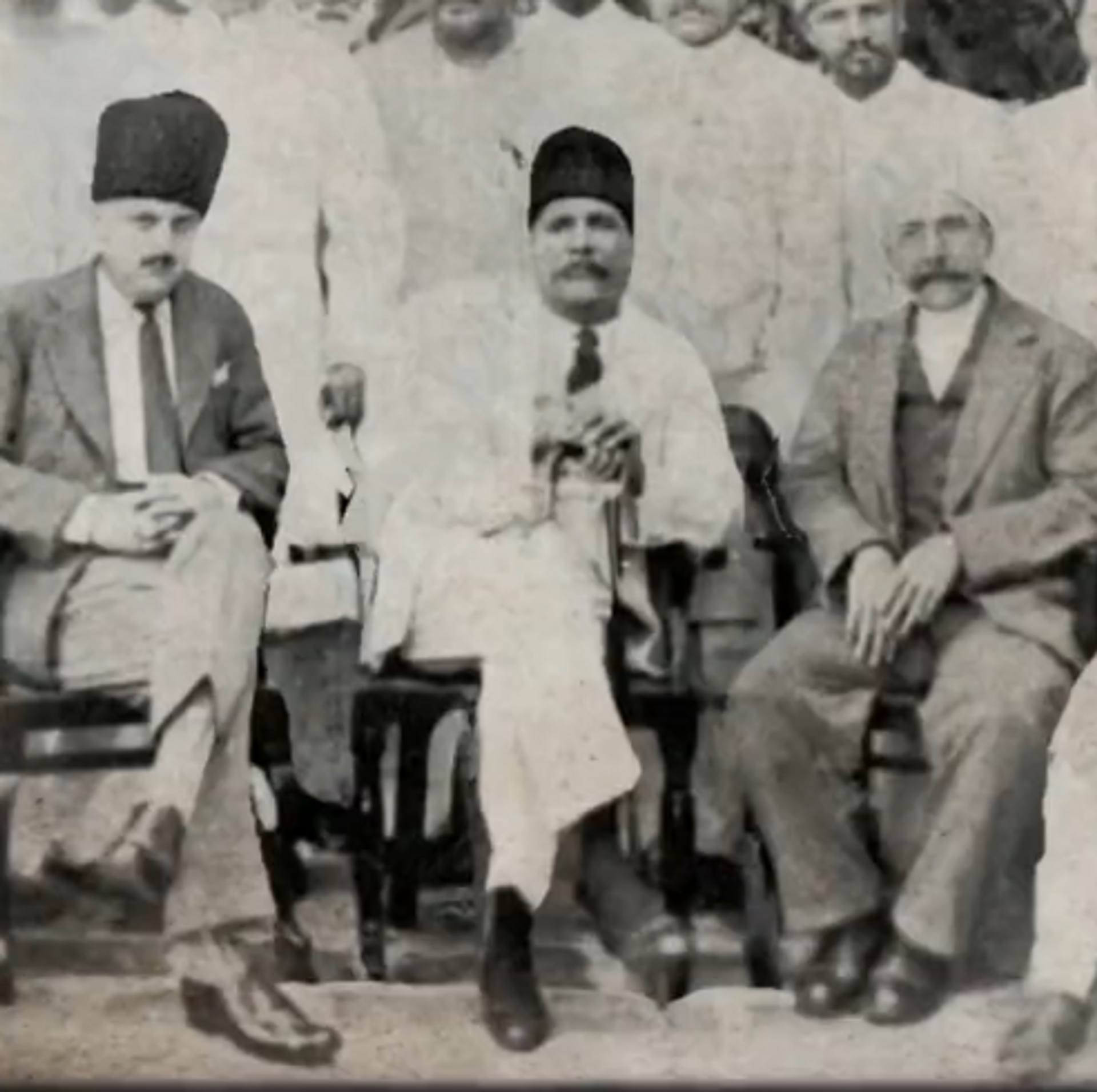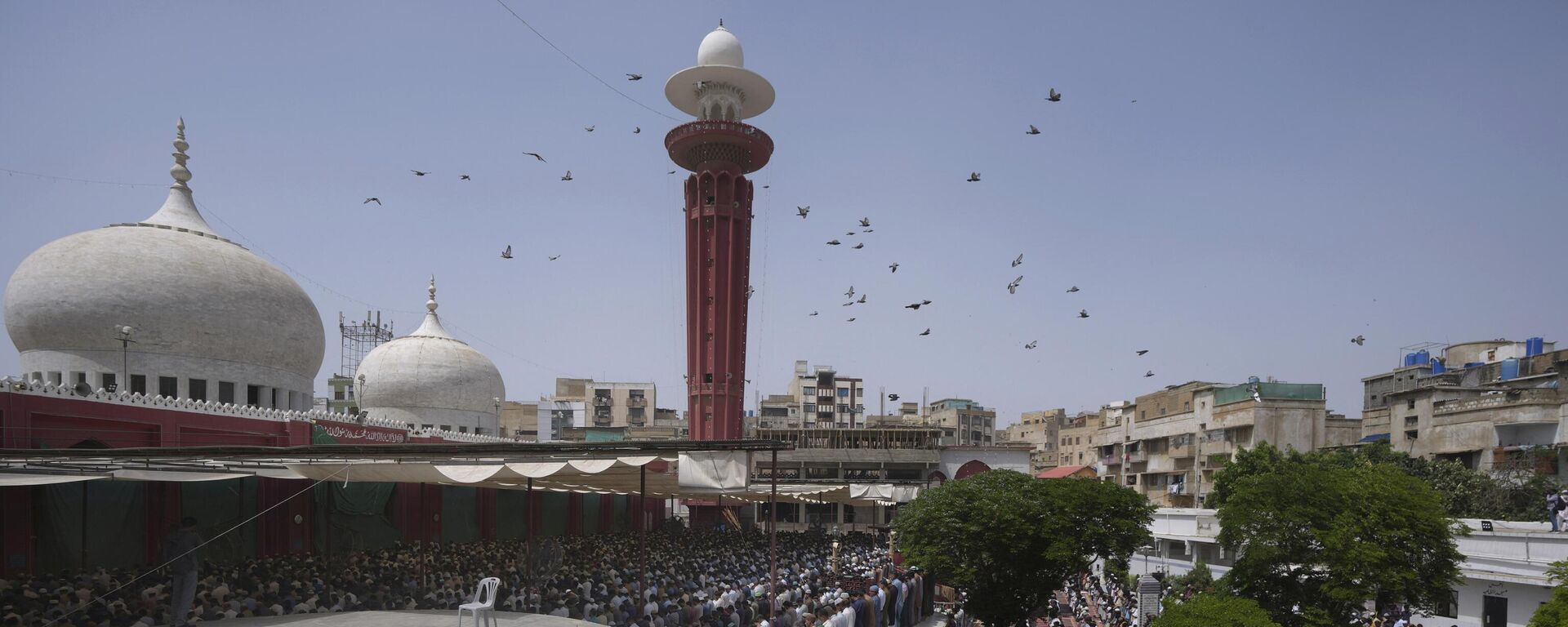https://sputniknews.in/20231109/allama-iqbal-the-poet-philosopher-who-shaped-pakistan-5325359.html
Allama Iqbal: Poet and Philosopher Who Shaped Pakistan
Allama Iqbal: Poet and Philosopher Who Shaped Pakistan
Sputnik India
Iqbal Day is celebrated by Pakistanis on 9 November, commemorating the father of Pakistan whose influence extended far beyond the realm of poetry.
2023-11-09T22:17+0530
2023-11-09T22:17+0530
2023-11-10T18:43+0530
pakistan
india
lahore
indian national congress (inc)
south asia
partition of india
history
allama iqbal
https://cdn1.img.sputniknews.in/img/07e7/0b/09/5332176_0:25:465:287_1920x0_80_0_0_38d893fafd83a00ec971820e6facb93e.png
Pakistan's government has declared Thursday a public holiday to mark Iqbal Day, marking the 146th birthday of the nation's esteemed poet and philosopher, Dr. Allama Muhammad Iqbal.In the tapestry of Urdu poetry, few figures stand as prominently as Allama Iqbal, a visionary poet whose words echoed not only through verses but also through the corridors of history, shaping the very foundations of Pakistan.Born in Sialkot on November 9, 1877, Iqbal's poetic brilliance and philosophical insights left an indelible mark on the cultural and political landscape of the Indian subcontinent.Iqbal's most famous works, such as Lab Pe Aati Hai Dua Ban Ke Tamanna Meri and Bang-e-Dra explored themes of self-discovery, spirituality, and the pursuit of a just society.His poetry seamlessly wove together the beauty of Persian and Urdu languages with profound philosophical musings, captivating readers and igniting a passion for introspection.Iqbal also wrote the Urdu ghazal Sare Jahan se Acha Hindustan Hamara, which became a unifying song against the British Raj. The song, an ode to Hindustan, became a patriotic ballad sung in India even today.Iqbal's poetry was translated into many European languages.Political Philosophy and Revival of Islamic CivilisationAllama Iqbal's influence extended far beyond the realm of poetry. His philosophical ideas played a pivotal role in the formation of Pakistan as Iqbal envisioned a nation where Muslims could live freely and prosper according to their own values and principles.Iqbal was born to Kashmiri parents and after completing BAs in philosophy, English literature, and Arabic at the Government College University Lahore, he went to England in 1905 to work with Sir Thomas Arnold while studying philosophy at Trinity College, Cambridge. Iqbal also received a PhD from Munich, Germany.Iqbal returned to Lahore in 1908 and taught philosophy and English literature while practicing law. He envisioned a political and spiritual revival of Islamic civilization, particularly in South Asia and a series of his lectures "The Reconstruction of Religious Thought in Islam" highlighted this vision.He became an active member in the Muslim League political party and stayed in touch with political leaders such as Mohammed Ali Jinnah and Ali Jouhar. He did not support Indian participation in World War I and was a critic of the Indian National Congress, which he saw as dominated by Hindus.His true leadership and drive was seen at the annual session of the Muslim League at Allahabad in 1930, where he gave the presidential address, making a famous statement that the Muslims of northwestern India should demand status as a separate state.Iqbal's famous address moved millions of people and it laid the groundwork for the demand for a separate nation for Muslims. In this historic speech, he articulated the idea of an independent Muslim state, urging for the preservation of Muslim identity and socio-political rights. His vision resonated with millions, and it became a catalyst for the Pakistan Movement.Gone But Not ForgottenIn 1933, upon returning from a trip to Spain and Afghanistan, Iqbal developed a serious throat illness, but he continued his important work. However, by 1938 Iqbal's health further deteriorated and he died in April and was buried in front of the grand Badshahi Mosque in Lahore.Two years later, in 1940, the Muslim League voted for the idea of Pakistan, which became a reality in 1947.The poet's dream materialized when Pakistan emerged as an independent nation on August 14, 1947 fulfilling Iqbal's vision for a homeland where Muslims could govern themselves and uphold their cultural and religious heritage.Iqbal's philosophical ideals, embedded in the very soul of Pakistan, continue to inspire generations, fostering a sense of national identity and unity. His legacy endures not only through the verses of his poetry but in the very existence of Pakistan itself.Iqbal's profound insights into the human condition, spirituality, and the pursuit of justice remain timeless, reminding us that the pen, when wielded with wisdom, can shape destinies and carve nations.
https://sputniknews.in/20230814/pakistan-independence-day-the-birth-of-nation-3581240.html
pakistan
india
lahore
south asia
Sputnik India
feedback.hindi@sputniknews.com
+74956456601
MIA „Rossiya Segodnya“
2023
Aneela Rashid
https://cdn1.img.sputniknews.in/img/07e6/0c/0d/74548_0:0:485:484_100x100_80_0_0_821526e967ae85d041e2d30ee34fa1de.jpg
Aneela Rashid
https://cdn1.img.sputniknews.in/img/07e6/0c/0d/74548_0:0:485:484_100x100_80_0_0_821526e967ae85d041e2d30ee34fa1de.jpg
News
en_IN
Sputnik India
feedback.hindi@sputniknews.com
+74956456601
MIA „Rossiya Segodnya“
Sputnik India
feedback.hindi@sputniknews.com
+74956456601
MIA „Rossiya Segodnya“
Aneela Rashid
https://cdn1.img.sputniknews.in/img/07e6/0c/0d/74548_0:0:485:484_100x100_80_0_0_821526e967ae85d041e2d30ee34fa1de.jpg
iqbal day, allah iqbal, pakistani poet, iqbal day in pakistan, history of pakistan
iqbal day, allah iqbal, pakistani poet, iqbal day in pakistan, history of pakistan
Allama Iqbal: Poet and Philosopher Who Shaped Pakistan
22:17 09.11.2023 (Updated: 18:43 10.11.2023) Iqbal Day is celebrated by Pakistanis on November 9, commemorating the father of Pakistan whose influence extended far beyond the realm of poetry.
Pakistan's government has declared Thursday a public holiday to mark Iqbal Day, marking the 146th birthday of the nation's esteemed poet and philosopher, Dr. Allama Muhammad Iqbal.
In the tapestry of Urdu poetry, few figures stand as prominently as
Allama Iqbal, a visionary poet whose words echoed not only through verses but also through the corridors of history, shaping the very
foundations of Pakistan.
Born in Sialkot on November 9, 1877, Iqbal's poetic brilliance and philosophical insights left an indelible mark on the cultural and political landscape of the Indian subcontinent.
Iqbal's most famous works, such as Lab Pe Aati Hai Dua Ban Ke Tamanna Meri and Bang-e-Dra explored themes of self-discovery, spirituality, and the pursuit of a just society.
His poetry seamlessly wove together the beauty of Persian and Urdu languages with profound philosophical musings, captivating readers and igniting a passion for introspection.
Iqbal also wrote the Urdu ghazal Sare Jahan se Acha Hindustan Hamara, which became a unifying song against the British Raj. The song, an ode to Hindustan, became a patriotic ballad sung in India even today.
Iqbal's poetry was translated into many European languages.
Political Philosophy and Revival of Islamic Civilisation
Allama Iqbal's influence extended far beyond the realm of poetry.
His philosophical ideas played a pivotal role in the
formation of Pakistan as Iqbal envisioned a nation where
Muslims could live freely and prosper according to their own values and principles.
Iqbal was born to Kashmiri parents and after completing BAs in philosophy, English literature, and Arabic at the Government College University Lahore, he
went to England in 1905 to work with
Sir Thomas Arnold while studying philosophy at
Trinity College, Cambridge. Iqbal also received a PhD from Munich, Germany.
Iqbal returned to
Lahore in 1908 and taught philosophy and English literature while practicing law. He envisioned a political and
spiritual revival of Islamic civilization, particularly in South Asia and a series of his lectures
"The Reconstruction of Religious Thought in Islam" highlighted this vision.
He became an active member in the
Muslim League political party and stayed in touch with political leaders such as
Mohammed Ali Jinnah and
Ali Jouhar. He did not support Indian participation in World War I and was a critic of the
Indian National Congress, which he saw as dominated by
Hindus.
His true leadership and drive was seen at the annual session of the Muslim League at Allahabad in 1930, where he gave the presidential address, making a famous statement that the Muslims of northwestern India should demand status as a separate state.
Iqbal's famous address moved millions of people and it laid the groundwork for the demand for a separate nation for Muslims. In this historic speech, he articulated the idea of an independent Muslim state, urging for the preservation of Muslim identity and socio-political rights. His vision resonated with millions, and it became a catalyst for the Pakistan Movement.
In 1933, upon returning from a trip to Spain and
Afghanistan, Iqbal developed a serious throat illness, but he continued his important work. However, by 1938 Iqbal's health further deteriorated and he died in April and was buried in front of the grand
Badshahi Mosque in Lahore.
Two years later, in 1940, the Muslim League voted for the idea of Pakistan, which became a reality in 1947.
The poet's dream materialized when Pakistan emerged as an independent nation on
August 14, 1947 fulfilling Iqbal's vision for a homeland where Muslims could govern themselves and uphold their cultural and
religious heritage.
Iqbal's philosophical ideals, embedded in the very soul of Pakistan, continue to inspire generations, fostering a sense of national identity and unity. His legacy endures not only through the verses of his poetry but in the very existence of Pakistan itself.
Iqbal's profound insights into the human condition, spirituality, and the pursuit of justice remain timeless, reminding us that the pen, when wielded with wisdom, can shape destinies and carve nations.




